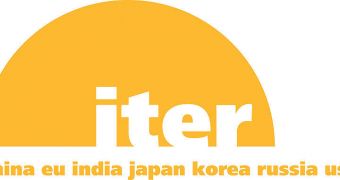The international group of scientists that is in charge of the international nuclear fusion research project known as ITER recently managed to secure additional funding from the European Commission. The organization is the executive arm of the European Union, and it agreed to supply the project with an additional €860 million ($1.13 billion) in previously “unused” funds. However, the EC made it clear that it will not make any more funds available to the initiative, Chemistry World reports.
The EU is already contributing more than half the current price tag associated with ITER, in addition to providing the ground on which the tokamak will be built. Partners include the United States, Japan, Russia, India, China and Korea, but these countries don't even contribute half of the over $16 billion that the project needs for completion. Since first proposed, the costs associated with the intricate machinery have tripled, and expenses have spiraled out of control.
With the new EC decision, a new director was also selected for the project. Osamu Motojima is a Japanese research scientist specialized in nuclear fusion science. He has already contributed to the construction of the Large Helical Device in Japan, which is a state-of-the-art research facility dedicated to nuclear fusion as well. Streamlining the management structure and reducing the complexity of the construction processes were the first decisions the Japanese experts took for reducing costs and construction times. It remains to be seen whether his approach will actually be successful.
The fact that the EU decided to add the additional funds to the ITER budget in a time of severe financial crisis again demonstrates the Union's commitment to researching this clean method of energy production. “The EU needs to show the vision and the resolve beyond the immediate financing difficulties. What we are proposing is a balanced solution,” says the European commissioner for research, innovation and science, Maire Geoghegan-Quinn, speaking about the fact that no additional funds will be awarded to the project from the European side of project. The group managing the effort still needs to come up with a few million euros in savings, she concludes.

 14 DAY TRIAL //
14 DAY TRIAL //